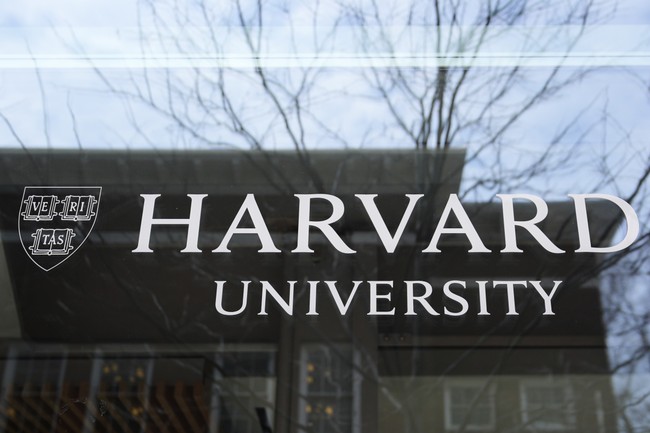Why won’t Harvard spend its own endowment to make up for the federal funding it lost in its fight with Donald Trump? That question hangs over every alternate strategy Harvard has employed thus far. They have gone to court, they have gone to the media, and they have gone to Corporate America rather than loosen their own pursestrings with an endowment estimated at over $53 billion.
Harvard and its defenders claim that accessing the money creates massive complications, due to terms and conditions of the donations and the structure of the endowment itself. A new analysis from the Wall Street Journal suggests that the main complication is that a significant amount of that money may be imaginary — and that may open a Pandora’s box on Wall Street:
Rep. Elise Stefanik (R., N.Y.) recently sought an investigation into Harvard’s financial disclosures to bondholders. She might as well have fired a bazooka at the entire private-equity industry.
In a letter to Securities and Exchange Commission Chairman Paul Atkins, the Republican congresswoman said the university’s finances might be more precarious than publicly acknowledged. Much of its $53 billion endowment is invested in private-equity funds that “are often overvalued due to reliance on internal estimates and outdated transaction data,” she said.
The letter added that “the real, realizable value of these assets is likely far below stated values,” because of higher interest rates and declining private-market valuations.
Did Harvard make those numbers up? Not at all — and that’s the real problem:
She might be right. But Harvard doesn’t generate those valuations itself. It gets them from the external managers at the funds where it invests.
So if the SEC investigates Harvard over the valuations, it should also investigate the private-equity firms that provide them, if not the whole private-equity sector. This could be helpful. With a full-court press under way in Washington to get private-market funds, like private equity, into Americans’ 401(k) retirement plans, it’s more urgent than ever that alternative investments reflect market realities, not wishful thinking.
One can see where this could go south, really quickly. These valuations are more of an art than a science, and maybe bad art at that. The numbers don’t become real until transactions take place and force new valuations on assets. If Harvard has to start liquidating assets in its endowment portfolio on any significant scale, it could force new valuations that would spread outward to other private-equity portfolios, impacting institutional investors whose own net worth and balance sheets are reliant on inflated numbers to function.
How big of a problem is that? Normally, the WSJ explains, private-equity funds raise cash by selling stakes at a discount to secondary markets. The average discount is 11%, and for venture-capital funds, it’s 25%. It’s not that the Harvard endowment is worthless, but it’s probably worth less than everyone thinks, and it may be worth a lot less. The act of liquidating assets or selling stakes to raise funds for operating costs would force transparency on the true value of the endowment, and that would have a ripple effect throughout the economy. That itself might give Harvard some leverage with corporate America to kick in some cash as a donation rather than liquidate assets that might impact their own wealth estimates in the long run.
It’s an industry-wide problem, writes Jonathan Weil, and Stefanik’s efforts to pin Harvard down might actually help the SEC develop new rules to reduce or eliminate the abuses in private-equity assessments. In the short run, however, it’s a complication for Harvard, which may not want to undergo that kind of re-evaluation at the same time they’re fighting Trump for their privilege to access federal funds while refusing to follow federal law.
And some other schools are getting sick of the fight, too, especially on such morally mired ground. When UVA president James Ryan announced his resignation on Friday under fire for civil-rights violations, some at the university wondered what had taken so long:
While the administration has been vocal about some of its other university fights, such as those against Harvard and Columbia, the federal government kept the one against UVA under wraps. Some experts speculate the different approach was due to the support the federal government thought it could get among other UVA leadership that was not possible at the Ivy Leagues.
“It’s not necessarily that they were trying to put public pressure on the president to resign as much as they were almost like leaning towards friendly ears in some ways, to say that, ‘Hey, nice university, it’d be a real shame if something happened to it,’” said Adam Harris, senior fellow at New America.
Protests were held on the school’s Charlottesville Grounds after the ouster was announced, but for more conservative members of the school’s alumni network, the move was a long time coming.
Just how much does Harvard want to lose in this fight to remain attached to the public teat?
Read full article at source
Stay informed about this story by subscribing to our regular Newsletter


